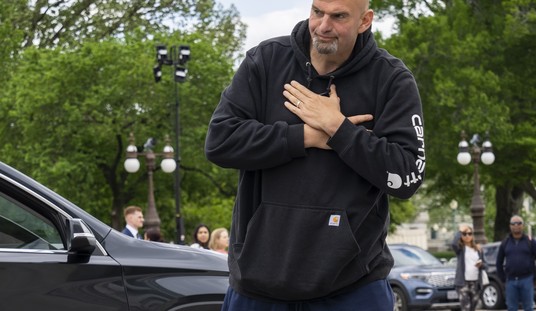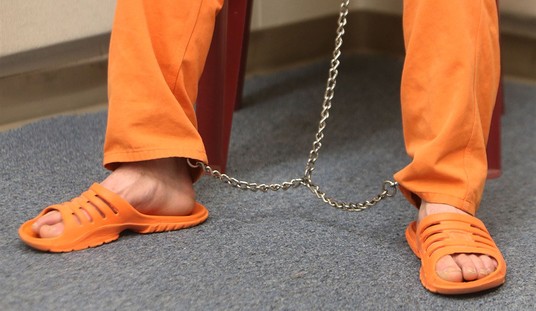This week, California lawmakers will debate a proposed measure that would increase the penalties for those convicted of purchasing children for sex. Currently, this crime is classified as a misdemeanor.
There appears to be a level of optimism that the bill will become law, which could go further toward protecting minor victims of sex trafficking, a problem that has grown increasingly prevalent in America.
While this is undoubtedly a positive step, it raises an important question: Why was this crime classified as something as minor as a misdemeanor in the first place?
Under California law, purchasing or soliciting a child for sex is a misdemeanor carrying a maximum penalty of up to a year in jail, or a minimum of two days in jail, and a $10,000 fine. Republican State Sen. Shannon Grove is trying to change that with SB 1414, which would classify the crime as a felony, carrying a maximum penalty of up to four years in prison and a $25,000 fine.
“A lot of the survivors of lived experience have said you’ve gotta go after the buyer, it’s just a misdemeanor and I said there is no way,” Grove told KCRA 3. “I thought they were mistaken.”
The bill would also remove the requirement in state law that those convicted of soliciting a minor knew or should have known that person was a minor. Grove is also proposing to require those buyers to register as sex offenders for ten years.
Similar proposals have been failing at the state capitol since 2014, according to an analysis of the legislation. The bill will have its first hearing in the Senate Public Safety Committee on Tuesday.
The bill is part of a larger effort to combat human trafficking. The measure would address a loophole in the law that imposes lenient punishments on those seeking to prey on children.
Senator Grove, who previously has backed human trafficking enforcement bills in the past, including last year’s SB 14 which added human trafficking as a strike under California’s three strikes law, wrote the bill to correct a loophole in California law that currently lists solicitation or attempting to engage or engaging in sex with a minor for money being classified as a misdemeanor offense. Because of the current loophole, many offenders sex trafficking minors avoid stricter penalties. Grove and the other authors have said that SB 1414 will correct that.
“It takes two criminals to commit the crime of child sex trafficking, a buyer and a seller,” said Senator Shannon Grove in a statement on Thursday. “With the passage of SB 14, we went after the sellers and now we are going after the buyers, those who are purchasing sex from children. Anyone who pays to commit brutal crimes against children should be prosecuted to the fullest extent of the law. With the passage of SB 1414, California is sending a very clear message—Not one more child.
“California must send a clear message that the exploitation of children for sex is an abhorrent crime that demands severe consequences. SB 1414 seeks to correct existing shortcomings and ensure that the actions of buyers are treated with the seriousness they deserve.”
It is expected that the bill will pass with overwhelming support. A Capitol staffer told the California Globe that “Not one Assemblymember or Senator will vote against this bill” and “This is a no brainer bill that no one is going to vote against unless they really don’t want to win in November.”
Again, this is a positive step -- but I can’t stop wondering why this crime was ever classified as a misdemeanor in the first place. It appears that it may have been an oversight that was never corrected. But it also appears to reveal differences in how red and blue states view harm done to children.
Florida recently passed five new laws beefing up punishments for those who sexually abuse minors. RedState’s Ward Clark covered the issue.
These laws come on the heels of Florida’s crackdown on retail theft, in which Governor DeSantis signed into law Florida’s HB 549, which increased penalties for shoplifting and theft of parcels left on doorsteps, or “porch piracy.”
The new laws include:
HB 1131 - creates online sting operations to protect children and a grant program within Florida’s law enforcement to facilitate these operations.
HB 1235 - creates stricter guidelines for sexual offender registration, such as ending loopholes where offenders stay in an area but are registered in another.
SB 1224 - strengthens and implements training for law enforcement for domestic violence situations, such as requiring the court to appoint a guardian ad litem for a child at the earliest possible time. The bill also creates a lethality assessment to determine if a victim has a higher risk of suffering violence.
HB 305 - expands evidence that can be brought in child sex abuse cases, such as allowing the out-of-court statements child victims make to be admissible in certain circumstances.
HB 1545 — Increases child exploitation offenses; creates the offense of harmful communication to a minor and adds enforceability against those who talk with minors about sexual conduct.
Yet, California’s politicians were gung-ho about imposing legislation aimed at protecting the use of “gender-affirming care” on children experiencing gender dysphoria. These treatments include the use of puberty blockers, hormones, and surgery intended to “transition” youngsters to the opposite sex.
Several studies have shown that these treatments can cause irreversible physical, emotional, and mental damage – especially when they are given to children. It is clear that California’s government is more concerned about advancing progressive ideology through policy than they are with protecting children.
Still, at least there are some measures to protect children that the Golden State’s politicians can get behind.













